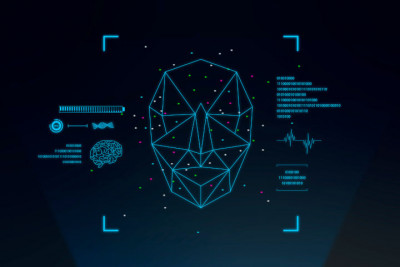Computer Vision
Course Description
Welcome to our online course on Computer Vision, a fascinating subcategory of artificial intelligence (AI) that delves into the realm of visual data processing, analysis, and interpretation. In this course, you will embark on a journey to understand how digital systems can be designed and utilized to enable computing devices to accurately identify objects and individuals within digital images, facilitating appropriate and informed actions.
The core of computer vision lies in the utilization of Convolutional Neural Networks (CNNs) for processing visual data at the pixel level, and Deep Learning Recurrent Neural Networks (RNNs) to discern the intricate relationships between pixels. Through these advanced technologies, we aim to empower you with the knowledge and skills to navigate the complexities of computer vision.
The course is tailored for learners seeking a refresher on the fundamental concepts of computer vision and those desiring a brief introduction to its capabilities. By the end of this program, you will not only comprehend the essence of computer vision but also master its essentials. This knowledge will equip you to identify crucial computer vision application fields and understand the intricate workflows of digital imaging.
Key Course Highlights:- Understanding Computer Vision Basics: Gain a comprehensive understanding of the fundamental ideas that drive computer vision. Explore how this technology strives to enable computers to perceive and interpret the world akin to human understanding.
- Essentials of Computer Vision: Master the core principles of computer vision, including image acquisition, processing, analysis, and interpretation. Develop a solid foundation that forms the basis of various computer vision applications.
- Identification of Application Fields: Explore real-world applications of computer vision, discovering its role in diverse fields such as healthcare, automotive, security, and more. Understand how this technology is transforming industries and solving complex problems.
- Workflow of Digital Imaging: Delve into the workflow of digital imaging, unraveling the steps involved in translating visual data into meaningful and actionable insights. Acquire practical knowledge that can be applied to real-world scenarios.
- Career Opportunities: Build confidence in your understanding of computer vision and open up a wide array of career opportunities. Whether you are a beginner or an experienced professional, this course will enhance your skills and broaden your career prospects.
Embark on this transformative journey through the world of computer vision. Join us and unlock the potential to see and understand the digital world through the lens of artificial intelligence.
Course Curriculum
- Session 1 : Introduction to Computer Vision
- Session 2 : Image Formation
- Session 3 : Image Representation - Theory+Hands on Session ( Flipping image, Contrast reduction)
- Session 4 : Installation of Anaconda and OpenCV - Hands on Session
- Session 5: Image Processing with OpenCV and Python - Hands on Session
- Computer Vision - Module 1- Knowledge Checkpoint
- Session 1: Image Enhancement - Hands on session (Removing Noise)
- Session 2: Image Transformation-I
- Session 3: Image Transformation-I - Hands on session ( Linear, log and Power law transformation)
- Session 4 : Morphological Operations - Theory +Hands on session ( opening, closing, erosion, dialtion)
- Session 5: Histogram Equalization - theory+Hands on session ( Histogram equalization)
- Computer Vision - Module 2 - Knowledge Checkpoint
- Session 1: Image Classification I - Naive Bayes - Theory+Hands on session
- Session 2: Image Classification II - KNN with Handson material
- Session 3: Dimensionality Reduction with PCA -Reading Material
- Session 4: Object Detection - Theory + Hands on session
- Session 5: Object Tracking - Theory + Hands on session

Dr. Mayuri AVR
Senior Assistant Professor (Grade 2)Dr. AVR Mayuri is currently working as Senior Assistant Professor (Grade 2) in School of Computing Science Engineering in VIT Bhopal University.










